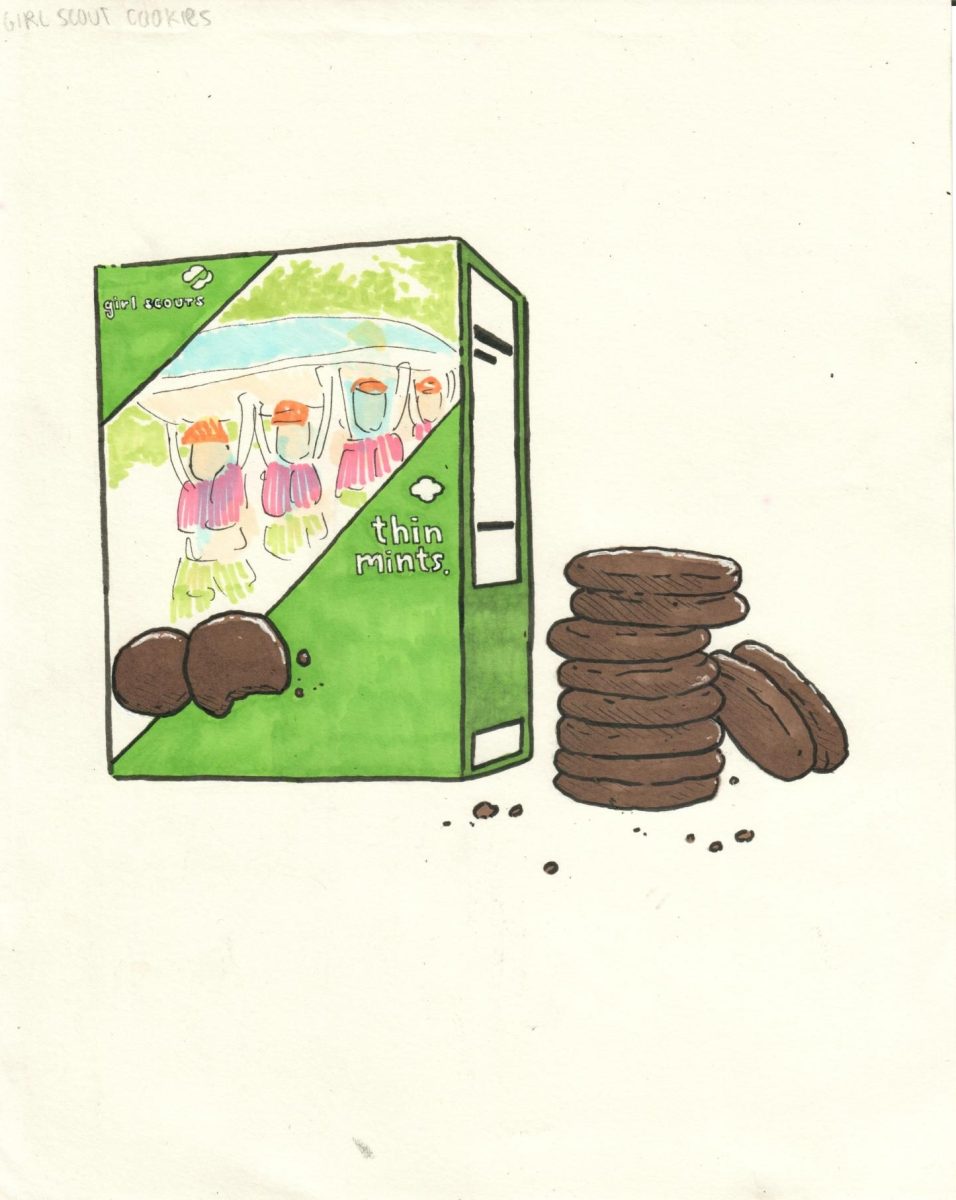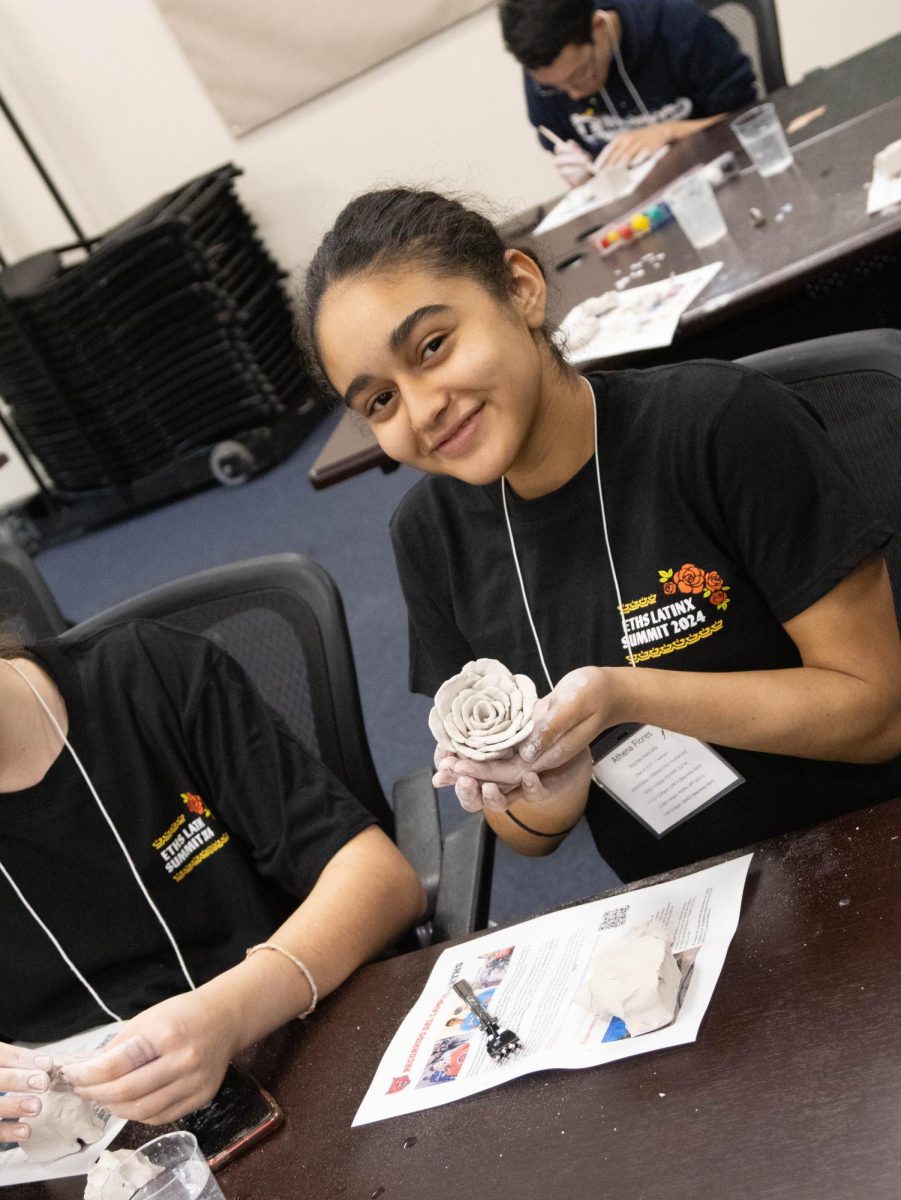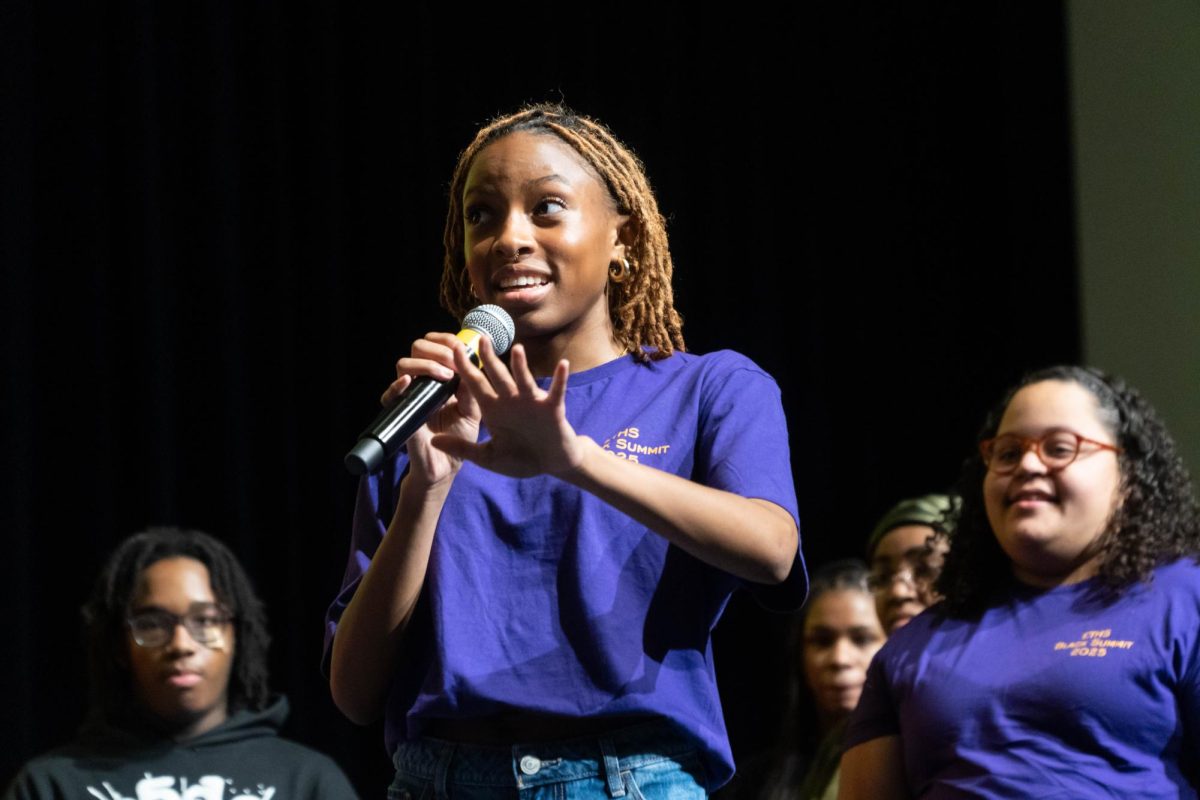During the last week of March, ETHS honored Holocaust Remembrance Week, a tradition that has been occurring for decades. Although the national day of remembrance is Jan. 27, ETHS’s tradition has held strong, only pausing for COVID-19. Commemorating the 11 million people who were murdered in the Holocaust, the annual event aims to honor those who were lost and educate the student body about the genocide.
“Simply learning that the Holocaust occurred or seeing images of the atrocities isn’t enough to prevent genocide and such horrors from occurring in the future. Instead, it is consistent, quality, open dialogue that creates the kind of education and awareness needed for our students to move forward in their lives as powerful agents of change,” said Rachel Kern, a German language teacher at ETHS.
The Hub served as a venue for events regarding Remembrance Week, where informational stalls were set up for students to learn about the atrocities that happened in the 1940s. For many people, the conversations could become emotional.
“Although the Holocaust may seem like a ‘long’ time ago, it was not. There are still people with living memories of this time. That means that many of our community members have personal connections to the Holocaust. I think it is important for people not to assume how or if someone may have an emotional reaction to these discussions,” Kern said. “When six million people are murdered in a remarkably short period, there is no way that the entire world can’t feel a connection to that, even 80 years later.”
Students not engage in conversations in the Hub but also in their classrooms. Teachers in any subject may take the time to do a quick and in-depth lesson on the subject.
“It’s important to remember all the hardships that people went through and the mass number of people who were tortured. It’s important to remember that many people were killed based on their religion and how wrong that is. It’s important to recognize the past so that we can grow in the future,” student participant Jessica Frolichstein said.
In a world of ongoing conflict, the importance of engaging in conversations surrounding past calamities becomes essential.
“Open questioning and discussion is so important, especially as violence and hatred continue to be pervasive around the world,” said Kern.







